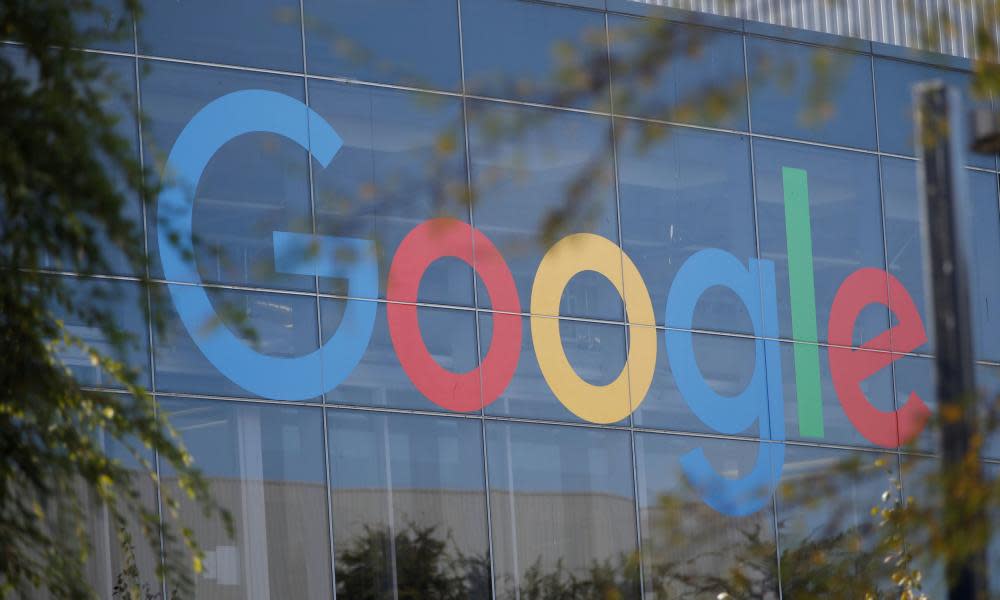Google detecting 18m malware and phishing messages per day related to Covid-19

The Covid-19 crisis has led to a significant increase in phishing attacks and scams as “bad actors” look to either frighten or motivate unsuspecting recipients of fake material, according to the search engine giant, Google.
Google has used a submission to the Senate’s select committee on foreign interference through social media to highlight a pandemic-related spike in online activity as “bad actors use Covid-related themes to create urgency so that people respond to phishing attacks and scams”.
The company says globally, its systems have detected 18m malware and phishing messages through Gmail a day directly related to Covid-19, in addition to more than 240m Covid-related daily spam messages.
Related: NSW braces for potential coronavirus outbreak as cases at Crossroads Hotel grow
“Our security systems have detected examples ranging from fake solicitations for charities and non-government organisations, to messages that try to mimic employer communications to employees working from home, to websites posing as official government pages and public health agencies,” the submission says.
The company says it has specifically identified more than a dozen government-backed attacker groups using Covid-19 themes as lure for phishing and malware attempts – trying to get their targets to click malicious links and download files, “including in Australia”.
“We’ve also seen attackers try to trick people into downloading malware by impersonating health organisations, and those organisations themselves are increasingly becoming targets of attacks,” the submission says.
The Senate inquiry was established last year to investigate the risks posed to Australia’s democracy by foreign interference through social media platforms including Facebook, Twitter and WeChat.
The Labor senator Jenny McAllister, who is chairing the probe, says the inquiry will include a particular focus on identifying malicious activity during the pandemic.
“The reason for that is Covid-19 has produced very significant social and economic disruption, and for malign actors that crisis obviously presents an opportunity to exploit, and that has been the case during the pandemic,” McAllister told Guardian Australia ahead of public hearings. “We need to identify the nature of the interventions during that period, the nature of the actors who have been involved, and the impact of those interventions.”
Google’s submission to the inquiry says the company is not seeing an overall rise in phishing attacks by government-backed groups, but it is “observing a change in tactics” during the pandemic.
The Australian taxation office issued an alert this month warning it had received increasing reports of “several myGov-related SMS and email scams”. The ATO said the scams looked like they originated from a myGov or ATO email address.
In May, Australian authorities reported that a “sophisticated” alleged fraud of early access to superannuation may have deprived up to 150 Australians of $120,000 of retirement savings.
The Australian federal police commissioner, Reece Kershaw, said the alleged fraud was the result of “an intrusion into a third party”, which was not a government agency. Kershaw said the alleged fraud was detected by financial intelligence agency Austrac, which informed the ATO, resulting in a referral to the AFP on 1 May.
The Senate inquiry has heard evidence from a range of groups that the pandemic is an accelerant for disinformation on social media platforms.
Related: 'Innovationish' training: Australian government spends $230,000 on latest management fad
The home affairs department has warned in a separate submission that foreign interference activity against Australian interests is occurring at an “unprecedented scale” and says measures to help people identify fake news could be one of the potential responses to defending sovereignty.
Google’s submission notes that on any given day, the company’s threat analysis group is tracking more than 270 targeted or government-backed attacker groups from more than 50 countries.
It says the groups it monitors have different goals. “While security attacks may focus on collecting intelligence or stealing intellectual property, coordinated influence operations and disinformation campaigns may be financially motivated, engaging in disinformation activities for the purpose of turning a profit; others are politically motivated, engaging in disinformation to foster specific viewpoints among a population, to exert influence over political processes, or for the sole purpose of polarising and fracturing societies”.
The foreign affairs minister, Marise Payne, used a recent major foreign policy speech to warn about the dangers of disinformation – a challenge she said was highlighted during the Covid-19 pandemic, when false information had the potential to cost lives.

 Yahoo News
Yahoo News 
